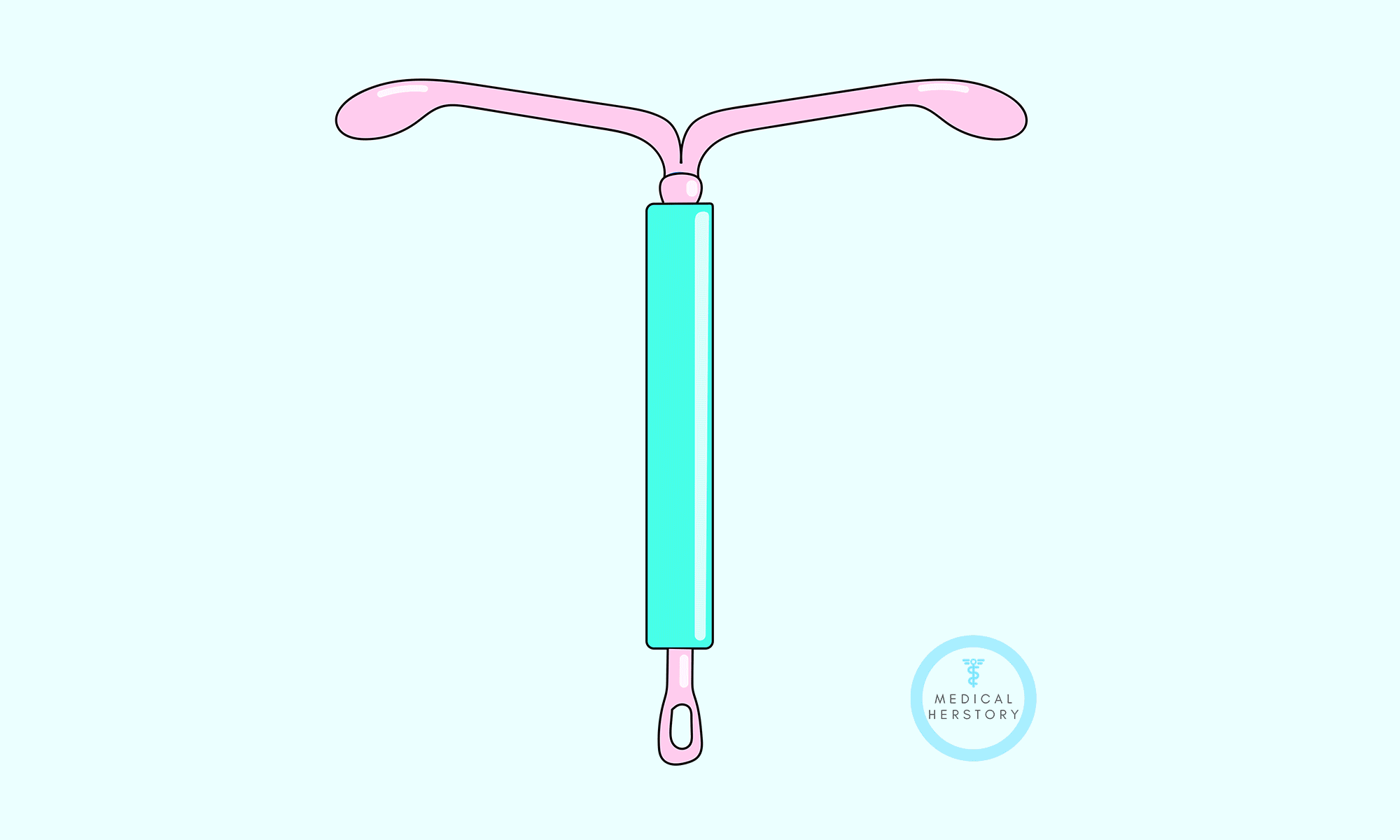In early November 2020, my sexual health took a turn. I thought I had a Urinary Tract Infection (UTI), which I went on antibiotics for. Still, a week after finishing the meds, I began having symptoms of a yeast infection. I told myself, “That’s normal and makes sense,” since antibiotic use can bring about yeast infections. The symptoms were ones I had experienced before and were almost identical to a yeast infection. I took it at face value and purchased an over-the-counter yeast infection kit from the pharmacy. However, instead of relief, the pain got worse. What started as relentless itching soon progressed to burning pain and extreme soreness that left my vulva and vagina feeling like it was rubbed raw by sandpaper. The pain was AWFUL. It hurt to go to the bathroom, it hurt when touched, and it even hurt to sit and walk — ultimately leaving me bed-bound for three days.
Unable to study for my university courses and suffering from extreme pain, I began to question wtf I was dealing with. “This is no regular yeast infection,” I thought to myself. “Maybe it was a bad side-effect from the UTI? Or perhaps it was Bacterial Vaginosis (BV) or contact dermatitis?” The possibility of an STI/STD never even crossed my mind. Even after consulting with some female friends and the internet, I had no clear answer for what was causing the agony of my vagina.
Most conditions that cause vaginal pain and itchiness I researched (such as UTIs, yeast infections, contact dermatitis, BV, irritants caused by allergies, and even stress) all depict the same symptoms with little distinction between one condition to the next. With no clear notion of my condition,the familiarity of the symptoms misled me to believe that what I had was a horrible case of a yeast infection.
After a week of experiencing pain, I made a phone consultation appointment with my clinic and spoke with a nurse about my symptoms. The nurse directed me to a doctor, who suggested that I may have herpes. My heart sank. After “HIV”, “herpes” was the dreaded H-word. The doctor instructed me to make an appointment for a pelvic exam as soon as possible to confirm the diagnosis.
At my appointment the next day, it only took the doctor about 30 seconds of looking at my vagina to diagnose me with genital herpes.
Filled with anxiety, I kept asking if it was at all possible I had something other than herpes, but he was certain. It was apparent I had ulcers, which were now at the healing stage and starting to scab or crust. Moreover, the full-body symptoms that I had experienced matched herpes: fatigue, swollen glands and lymph nodes, and stiff leg muscles. Defeated, I laid my head back as they did a swab and took blood to test for other STIs/STDs.
From the time of the phone consultation with the doctor to my appointment solidifying my diagnosis, I spent hours doing research on herpes simplex virus (HSV). While I did come across some useful information, I was baffled by the lack of information on womens’ experiences with genital herpes and how the virus impacts the female body. Cold sore (HSV-1) symptoms are fairly consistent between men and women –largely because mouths don’t differ based on sex – but when it comes to genital herpes (HSV-2), the available knowledge is significantly one-sided towards males. Anything from photos of genital herpes to lived-experiences to signs and symptoms is over-represent by men. This results in women, like myself, being unable to find information relevant to our genitalia — hence why I mistook my herpes outbreak for side-effects of a UTI or a nasty yeast infection.
For a disease that is widely prevalent amongst the general population, herpes is branded with enormous shame.
The stigma surrounding herpes has been completely blown out of proportion by pop culture. Men and women with herpes are labelled as “promiscuous” and “irresponsible” regarding their sexual activity. In television and movies, when herpes is mentioned, it is usually via a crude, tasteless joke to invoke humour, commonly through perceiving herpes as a “deal breaker” and the “worst possible thing” someone could get. But perhaps the primary reason for this stigma is due to herpes being an incurable, life-long disease. For myself, I was in shock and disbelief when the doctor over the phone told me I might have herpes because I had been careful about my sexual health. I feared the shame and misjudgement people might have knowing I was HSV-positive, and above all, the uncertainty of how this virus would impact my ability to be intimate with future sexual partners.
My worst fears were realized when I called my parents to reveal that I had gential herpes. Unexpectedly, the two people whom I thought would be most supportive about my condition were gobsmacked. Instead of being understanding and empathetic about my diagnosis, I was met with confusion, anger, and above all, blame. I sat in my room, disturbed and hurt, as I listened in horror to my parents’ reactions unfold at the announcement that their daughter possesses the herpes simplex virus.
My mother was sad for me learning that I was HSV-2 positive, but didn’t have any words of reassurance to offer because she needed time to “process” the news. My father on the other hand, proceeded to slut-shame me over the phone from the other side of the country. Words such as “irresponsible,” “reckless,” and “stupid” were spoken with utter disgrace. He blamed my life choices as the reason I got herpes: that I was being careless about my health and that I should have known better than to be hooking up with people I wasn’t in a relationship with. He even went as far as to say: “you thought it was difficult for you to find a boyfriend and be in a relationship before this? Well you just made it that much harder for yourself.” The rather ironic part about my father’s reaction is that he is HSV-1 positive.
Having grown up watching my father deal with the occasional cold sore, he was the last person I expected to be anything less than understanding and sympathetic. With all the other physical and mental health issues I was dealing with at the time, my father’s words cut like a knife and opened up yet another wound of anxiety and worthlessness. The stigma surrounding herpes was, and is, very real. And if I was experiencing it from my own parents, how would everyone else react?
Luckily, I found support through close friends that showered me with love and admiration for overcoming this hurdle. I also consider myself extremely lucky that I could turn to a family member who is HSV-2 positive. It was comforting to know that I had someone who I could go to for questions and be open about how I was feeling. Like all the medical professionals I have spoken with, this family member reassured me that herpes is very common and manageable. Furthermore, I have come across several online communities that are devoted to herpes and breaking the stigma surrounding it. They have been phenomenal resources to gain more information about the disease and have helped me feel empowered about being HSV-2 positive.
My story shows how little information is out there for women on the subject of sexual health and why it is vital we share our experiences.
Since my diagnosis, I learned just how common herpes is. Approximately two-thirds of the population has it, whether it be HSV-1 or HSV-2. It is also very manageable. The advancement of modern medicine through antiviral drugs allows people who have herpes simplex virus to live a “normal” life. Living with HSV means you can still have a fulfilling sex life: you just need to educate yourself about the disease.
If you maintain a healthy lifestyle, monitor your stress, avoid prolonged exposure to the sun, and take lysine supplements, you can go for long periods of time without experiencing outbreaks. Thankfully, the first outbreak is the worst in terms of pain, but it is important to know that if you are experiencing symptoms of a herpes outbreak –periods known as ‘shedding’ –you are at a higher risk of transmitting the STD to a partner, and a condom does not fully guarantee protection. Thus, it is vital to regularly use protection that prevents the spread of STDs and to wash sex toys after use. But above all, know that herpes is extremely common and that you are not alone.
Story by Cassia Nasralla, 21, Montreal, Canada


